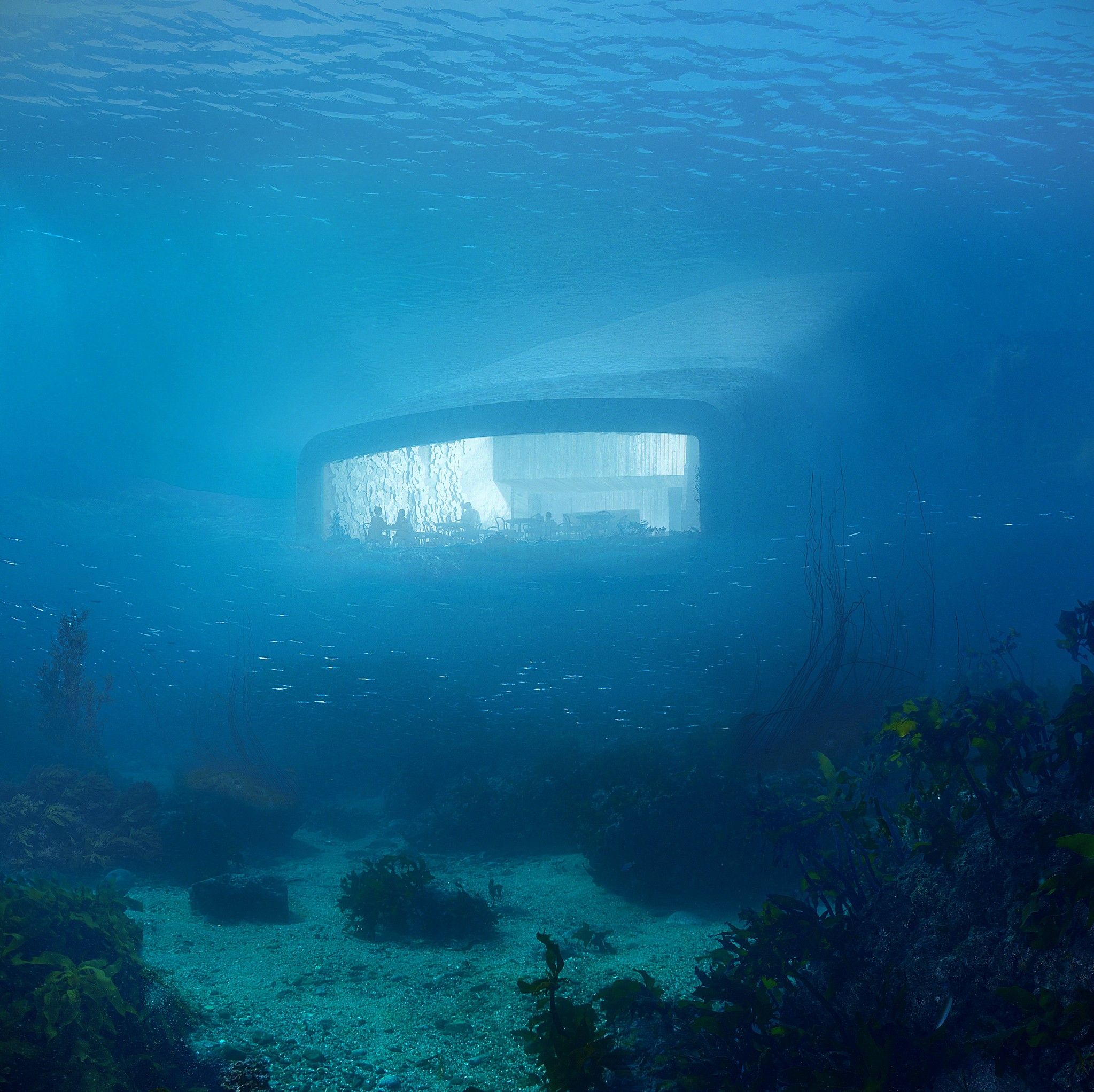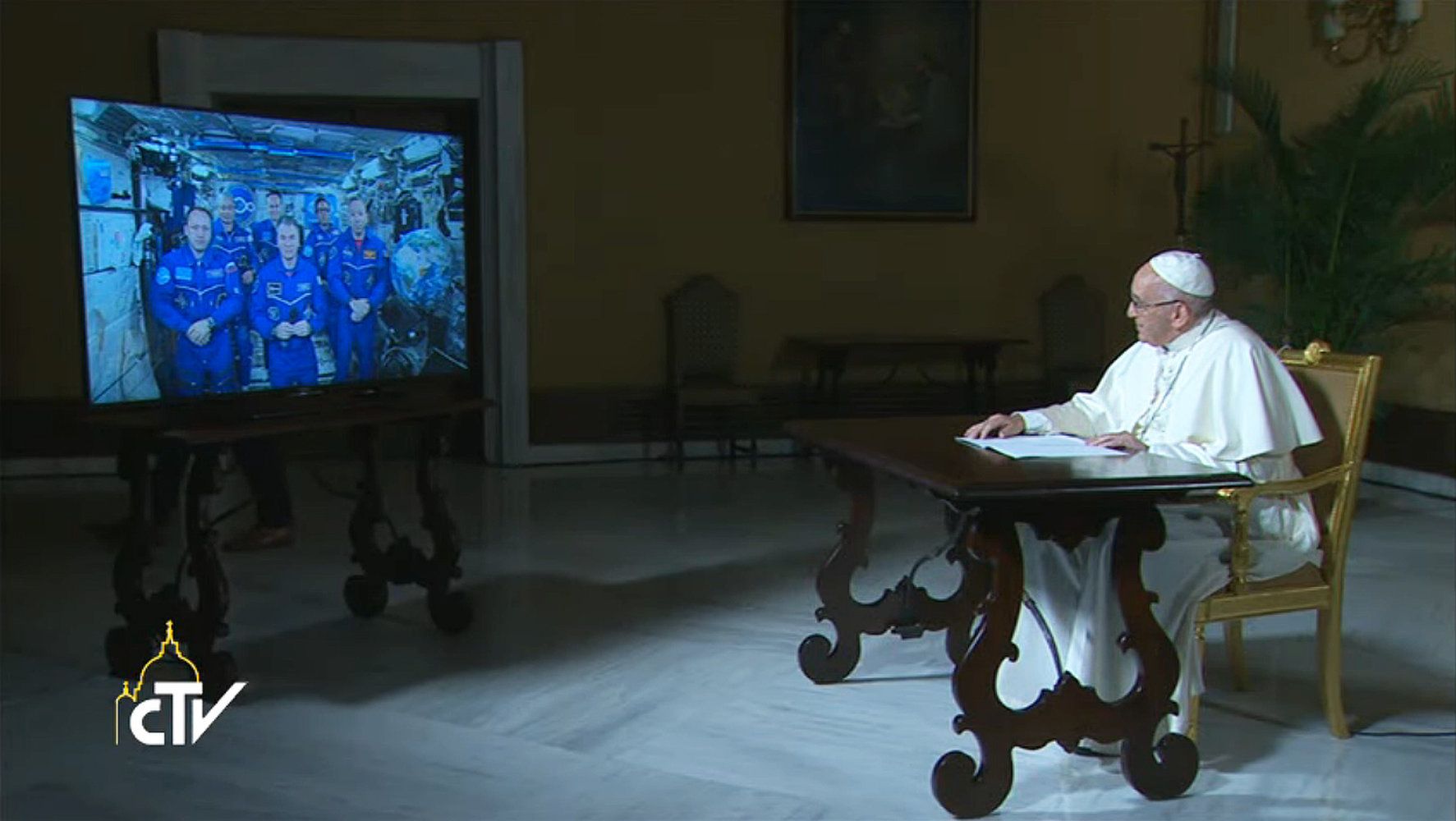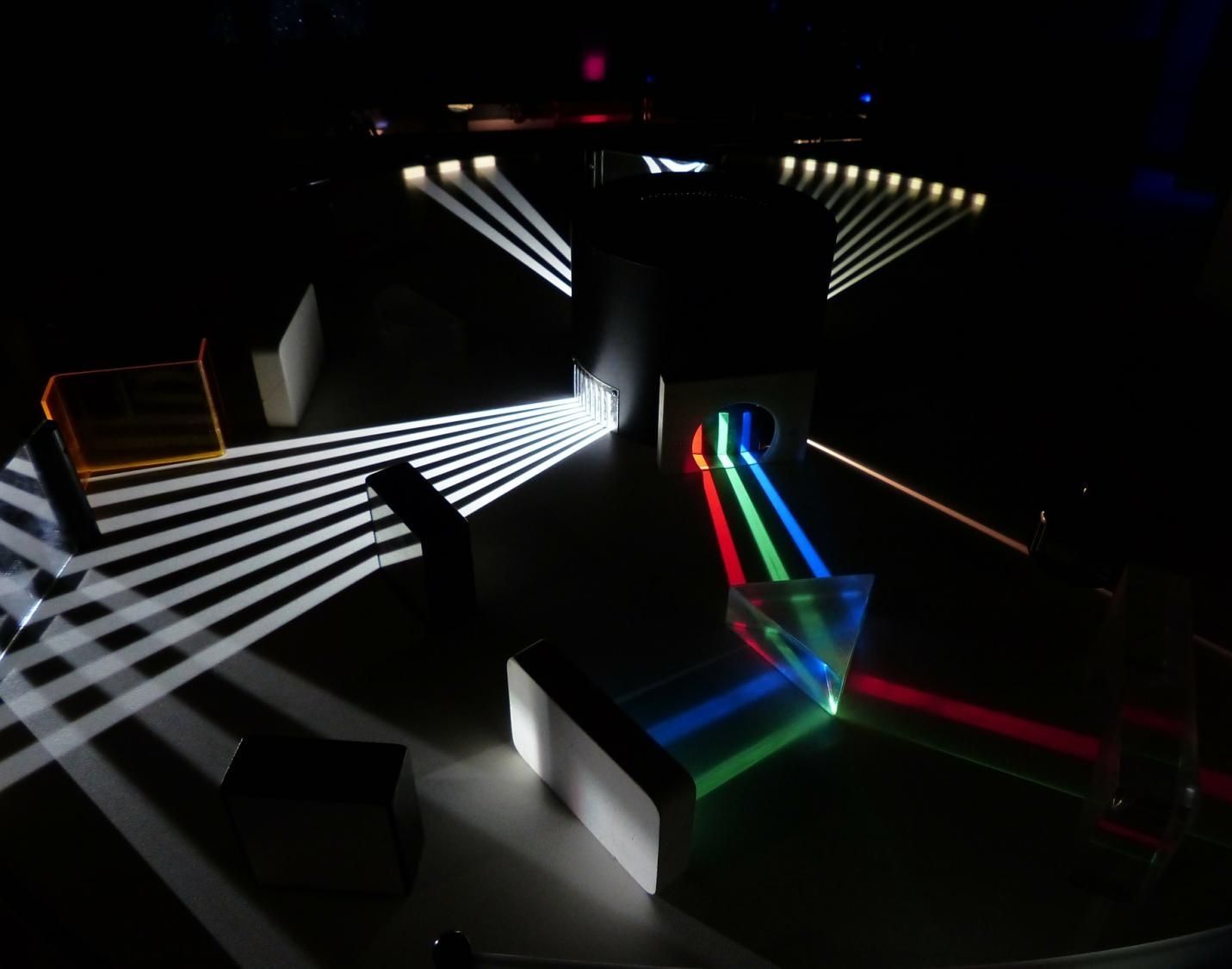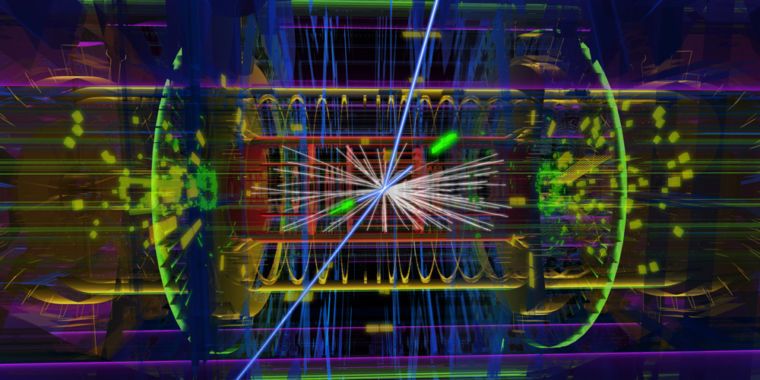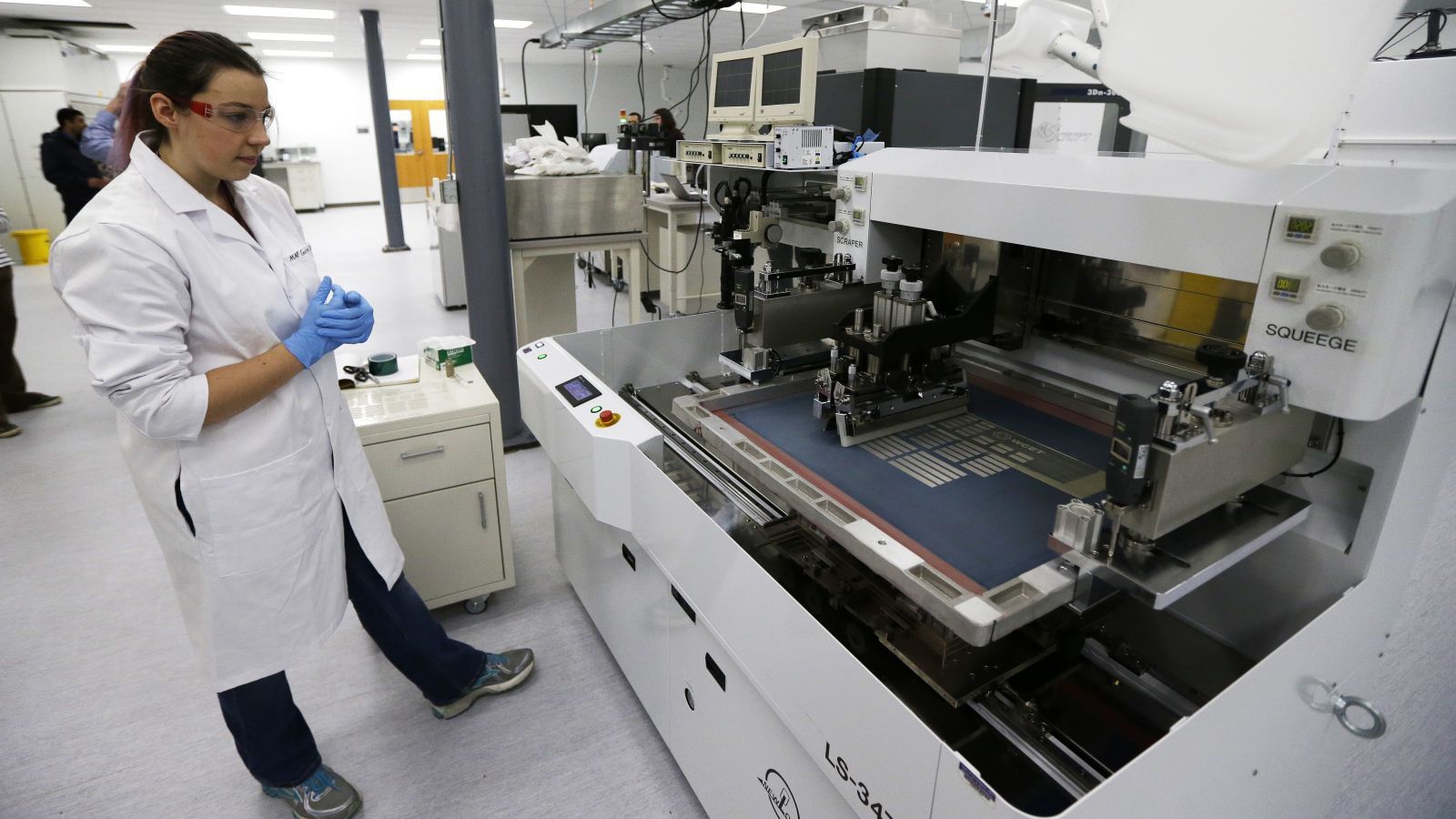Page 10105
Oct 27, 2017
‘Davos in the desert’ offers glimpse of how Saudi Arabia is changing
Posted by Derick Lee in categories: business, futurism
Women and men sat together Tuesday as some 3,000 business people, investors and officials from dozens of countries gathered in the capital of highly conservative Saudi Arabia.
Dubbed “Davos in the desert” — a reference to the annual World Economic Forum in Switzerland — the conference is the first of its kind.
IMF director Christine Lagarde (left) and Saudi Crown Prince Mohammed bin Salman (center) attend the Future Investment Initiative conference in Riyadh, Saudi Arabia, on Tuesday. Faisal Al Nasser / Reuters.
Continue reading “‘Davos in the desert’ offers glimpse of how Saudi Arabia is changing” »
At the southernmost point of the Norwegian coastline by the village of Båly, Snøhetta has designed Europe’s very first underwater restaurant. With its immediate proximity with the forces of nature, the restaurant, which will also function as a research center for marine life, is a tribute to the Norwegian coast and to Lindesnes – to the wild fauna of the sea and to the rocky coastline of Norway’s southern tip.
Under’s namesake holds a double meaning: In Norwegian, “under” can just as well be translated into “wonder.” Half-sunken into the sea, the building’s monolithic form breaks the water surface to lie against the craggy shoreline. More than an aquarium, the structure will become a part of its marine environment, coming to rest directly on the sea bed five meters below the water’s surface. With meter-thick concrete walls, the structure is built to withstand pressure and shock from the rugged sea conditions. Like a sunken periscope, the restaurant’s massive acrylic windows offer a view of the seabed as it changes throughout the seasons and varying weather conditions.
Through its architecture, menu and mission of informing the public about the biodiversity of the sea, Under will provide an under-water experience inspiring a sense of awe and delight, activating all the senses – both physical and intellectual.
Oct 26, 2017
Hello to the Heavens: Pope Francis Phones the Space Station
Posted by Brett Gallie II in categories: mobile phones, space
Pope Francis made a phone call to the International Space Station today (Oct. 26) to ask its six occupants deep questions about humanity’s place in the universe.
Calling from the Vatican in Rome, Pope Francis spoke with Italian astronaut Paolo Nespoli of the European Space Agency along with three NASA astronauts and two Russian cosmonauts.
“Your little glass palace in totality is greater than the sum of its parts, and this is the example that you give us,” Pope Francis said through a translator. [Space Station Photos: The Expedition 53 Crew in Orbit].
Continue reading “Hello to the Heavens: Pope Francis Phones the Space Station” »
Oct 26, 2017
Reflecting light off satellite backs up Wheeler’s quantum theory thought experiment
Posted by Andreas Matt in categories: particle physics, quantum physics, space
A team of researchers with Università degli Studi di Padova and the Matera Laser Ranging Observatory in Italy has conducted experiments that add credence to John Wheeler’s quantum theory thought experiment. In their paper published on the open access site Science Advances, the group describes their experiment and what they believe it showed.
The nature of light has proven to be one of the more difficult problems facing physicists. Nearly a century ago, experiments showed that light behaved like both a particle and a wave, but subsequent experiments seemed to show that light behaved differently depending on how it was tested, and weirdly, seemed to know how the researchers were testing it, changing its behavior as a result.
Back in the late 1970s, physicist Johan Wheeler tossed around a thought experiment in which he asked what would happen if tests allowed researchers to change parameters after a photon was fired, but before it had reached a sensor for testing—would it somehow alter its behavior mid-course? He also considered the possibilities as light from a distant quasar made its way through space, being lensed by gravity. Was it possible that the light could somehow choose to behave as a wave or a particle depending on what scientists here on Earth did in trying to measure it? In this new effort, the team in Italy set out to demonstrate the ideas that Wheeler had proposed—but instead of measuring light from a quasar, they measured light bounced from a satellite back to Earth.
Oct 26, 2017
Higgs boson uncovered by quantum algorithm on D-Wave machine
Posted by Andreas Matt in categories: information science, particle physics, quantum physics, robotics/AI
Oct 26, 2017
The Nootropics Community Is Using 23andMe to Match Smart Drugs to Their DNA
Posted by Ian Hale in categories: biotech/medical, genetics, neuroscience
There are multiple software options that analyze your genetic data and make recommendations on which supplements you should be taking.
Oct 26, 2017
Building the Blockchain to End All Blockchains
Posted by Anderson Tan in categories: bitcoin, cryptocurrencies, singularity

“If one blockchain were to become dominant, then the others may well fade away.” #singularityuniversity
Bitcoin, the first practical implementation of blockchain technology, was the buying opportunity of all time. The price of bitcoin has risen faster than any other asset in history, including tulips at the height of the tulip bubble.
Continue reading “Building the Blockchain to End All Blockchains” »
Oct 26, 2017
The rights of synthetic lifeforms is the next great civil rights controversy
Posted by Gerard Bain in categories: ethics, government, law, robotics/AI, transportation

With artificial intelligence technology advancing rapidly, the world must consider how the law should apply to synthetic beings. Experts from the fields of AI, ethics, and government weigh in on the best path forward as we enter the age of self-aware robots.
Artificially intelligent (AI) robots and automated systems are already transforming society in a host of ways. Cars are creeping closer to Level 5 autonomy, factories are cutting costs by replacing human workers with robots, and AIs are even outperforming people in a number of traditionally white-collar professions.
Continue reading “The rights of synthetic lifeforms is the next great civil rights controversy” »
Oct 26, 2017
DeepMind wants to find the next miracle material—experts just don’t know how they’ll pull it off
Posted by Sean Cusack in categories: robotics/AI, transportation
Artificial intelligence has historically over-promised and under-delivered. That routine leads to spurts of what those in the field call “hype”—outsized excitement about the potential of a core technology—followed after a few years and several million (or billion) dollars by crashing disappointment. In the end, we still don’t have the flying cars or realistic robot dogs we were promised.
But DeepMind’s AlphaGo, a star pupil in a time we’ll likely look back on as a golden age of AI research, has made a habit of blowing away experts’ notions of what’s possible. When DeepMind announced that the AI system could play Go on a professional level, masters of the game said it was too complex for any machine. They were wrong.
Now AlphaGo Zero, the AI’s latest iteration, is being set to tasks outside of the 19×19 Go board, according to DeepMind co-founder Demis Hassabis.


